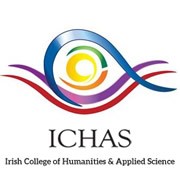Course Description
M.A. in Addiction Studies
Irish College of Humanities & Applied Sciences
This Master’s programme in Addiction Studies is designed for graduates in health and human sciences as well as disciplines such as nursing, social care, social work, psychology and programmes in the cognate area.
This programme will provide students with theoretical and practical opportunities for working in addiction counselling within various contexts in the statutory, community and voluntary sectors. The programme has been designed to facilitate students who wish to become professionally accredited by Addiction Counsellors Ireland to meet their pre-accreditation criteria.
Students will develop the knowledge and skills to become flexible through a positive openness to change. Each student will develop the ability to assess, plan, implement and evaluate professional actions and activities from planning through implementation and evaluative stages.
Equally, the programme is designed to accommodate the educational needs of learners who wish to enhance their skills and apply them within addiction services (including health promotion/preventative services, treatment settings and policy development and implementation contexts).
| College Name | Irish College of Humanities & Applied Sciences |
| Course Category | Humanities & Social Sciences |
| Course Type | Blended Learning - Mix of Classroom & Online |
| Course Qualification | Masters Degree |
| Course Location | Castletroy, Limerick, Ireland |
| Course Start Date | 1st September 2023 |
| Course End Date | 30th April 2025 |
| Course Fee | €7,200 |
| Course Duration | 1 Year ( Full Time) 2 Years ( Part-Time) |
| Course Times | The Programme can be completed on a Full time basis over one year ( 3 Semesters) or on a Part-time basis over two years (6 semesters). The programme uses a blended learning approach. In that regard, learners are required to engage in classroom-based learning, both traditional face-to-face contact and synchronous (live) delivery through the VIRI classroom, in addition to directed web-based e-learning. Learners have to engage in work-based learning and independent research and will receive tutorial support for these modules. These weekly lectures will be delivered primarily through synchronous classroom-based learning and the VIRI classroom, which will be normally timetabled on one evening per week and Saturdays across the Academic Year with Practice Support and Academic supervision extending into the Summer Semester. This programme will facilitate graduates of programmes to access professional accreditation, where the programme is taken over 2 years (Part-Time) and where the Knowing Self (5 ECTS) and Professional Placements (10 ECTS) are taken. However, students who specifically want to work towards professional accreditation will be directed to the MA in Addiction Counselling as a more appropriate Award for their specific needs in that case. |
| Awarding Body | QQI |
| Title of Awarding | M.A. in Addiction Studies |
| Entry Requirements | A minimum of a Second Class Honours (2:2) award in a relevant Human Science Degree at Level 8 on the NFQ – or equivalent. Those who have completed other relevant education programmes or have relevant professional experience etc., where Recognised Prior Learning (RPL) and Acquired Prior Learning (APL) can be applied, may apply for admission to the programme by submission of programme content, qualification and assignments equivalent to an appropriate Second Class Honours (2:2) award at Level 8. The minimum English language proficiency requirement for this programme is B2+ in the Common European Framework of Reference for Languages which is equivalent to an IELTS score of 6.5. All applicants will be required to attend for interview to ascertain their suitability for the Programme. Garda Vetting is a requirement for all successful applicants. |
| Career Path | The Masters in Addiction Studies will enhance employability and career progression/opportunities in statutory, community and voluntary sectors and Addiction Service environments. It will enable learners to critically evaluate institutionalised practices and values, and act as agents for challenge and change in their professional contexts. The programme will address the needs of practitioners and graduates who wish to develop their professional competence in areas of addiction recovery principles and practice through advanced study, and develop personal and professional capacity and collaborative problem solving skills, underpinned by evidence-based practice and reflection. The programme will also develop leaders in professional practice who are capable of engaging with and initiating necessary professional discourse at policy levels. |
Course Provider
Make Enquiry
Map
Irish College of Humanities & Applied Sciences
Limerick
Limerick


Comments, Questions & Reviews